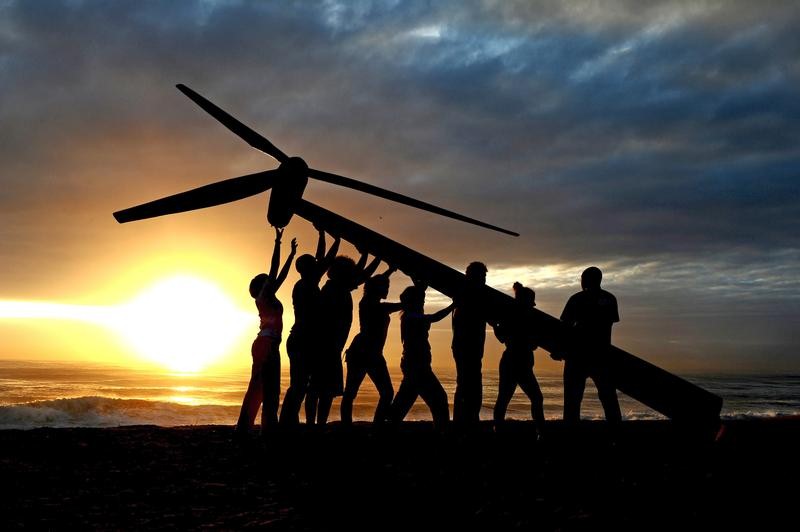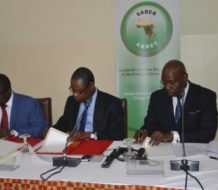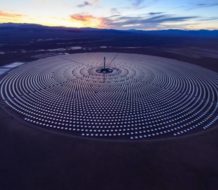Why groups like Access Power are vital to unlocking Africa’s vast clean energy potential.
The developed world has spent over a century thoroughly addicted to fossil fuels and such entrenched habits are proving hard to kick. On the other hand, Africa is bubbling with the promise of a renewable energy explosion.
Access Power, an organization which owns and operates renewable energy projects in developing nations, is leading the charge. Earlier this month, Access announced the winners of its $7 million competition: Access Co-Development Facility 2016 (ACF). Designed to kick-start promising African renewable energy projects, the competition was hotly contested.
Fierce competition
Reda El Chaar, Executive Chairman of Access Power, highlighted the scope of the African renewable revolution: “This year’s ACF competition introduced us to almost 100 projects, demonstrating the scale of entrepreneurialism and ambition across the African continent to meet the electrification challenge.”
Three companies were recognized as winners after a grueling three stage process: AGES, a solar project from Sierra Leone, Mentach Energy, a wind power development from Nigeria, and Stucky Ltd, a combined Hydro & Solar project from Madagascar. Together these schemes are expected to deliver over 100 megawatts to countless homes in their respective countries.
The revolution is coming; this year the ACF competition received a 75% increase in applications from budding renewable start-ups. What’s more, applications poured in from across the continent with a 40% increase in the number of nations involved in the competition. Africa is beginning to realize that it has massive clean-energy potential.
Energy Africa
The scope of this potential cannot be understated. Looking to the future, Africa has everything required to become the clean energy dynamo for the planet, in a new world where renewable energy is predominantly used.

African Energy Windtower
The continent possesses huge stretches of land where solar power could generate enormous returns, particularly in the Sahara where the sun shines relentlessly. Some studies have suggested that a solar facility covering 0.3% of the Sahara could generate enough electricity for the whole of continental Europe. Particularly in West Africa, where strong winds sweep costal and elevated regions, wind farms could be utilized to harvest significant amounts of clean energy. Hydroelectric power can also be used to far greater effect as the continent is rich in powerful rivers and vast lakes. According to the UN’s Environment Programme, East Africa’s Great Rift Valley region could produce over 4,000 MW of geothermal energy. What’s more, Africa has a huge coastline waiting to be exploited by tidal power projects.
The path ahead
Africa is truly an untapped gold mine when it comes to renewable energy, which is why organizations like Access Power are so important in driving forward the expansion of renewable energy usage. The region is lagging behind the rest of the world when it comes to energy availability. Over 70% of sub-Saharan Africa is without access to reliable power, with many rural areas almost entirely off the grid. The problem is compounded by population growth as Africa’s population is set to increase by 1.3 billion between now and 2050.
Renewable energy is the obvious answer. Renewables like wind and solar can provide rural populations with accessible, closed-loop power, while large scale projects have greater long term promise than fossil fuels for improving net availability. As Africa rushes to improve its energy infrastructure, it needs to embrace clean power, not dirty.
Currently, renewable energy accounts for only 7% of Africa’s current energy production. As the region becomes more energy hungry, a continuation of this trend would be a hammer blow to climate change goals, and a huge missed opportunity given the continent’s potential. However, Africa is also home to abundant traditional energy options such as coal and gas. For developing nations, the temptation to lean on such resources is strong, especially as they remain the easier option in the absence of foreign investment.
The Africa EU Energy Partnership (AEEP) has a crucial role to play at this juncture. Dr. Michael J. Saulo, of the Technical University of Mombasa explained, “Africa needs Europe and Europe needs Africa. Europe has the know-how and the private investment, Africa has a vast potential for renewables. All factors converge together.”
Increased Euro-African cooperation is removing many historical deterrents to investment, such as political uncertainty and cumbersome government regulation. Another obstacle, the perception of poor returns on investments, has also melted away now that the start-up costs for wind and solar projects have plummeted to very attractive levels.
For the future of renewables in Africa, the signs are promising. However it is not just Africa that stands to gain. The continent is about to become a pivotal battleground in the fight against climate change. More foreign investors like Access Power are sorely needed if Africa is to realize its clean energy potential.




